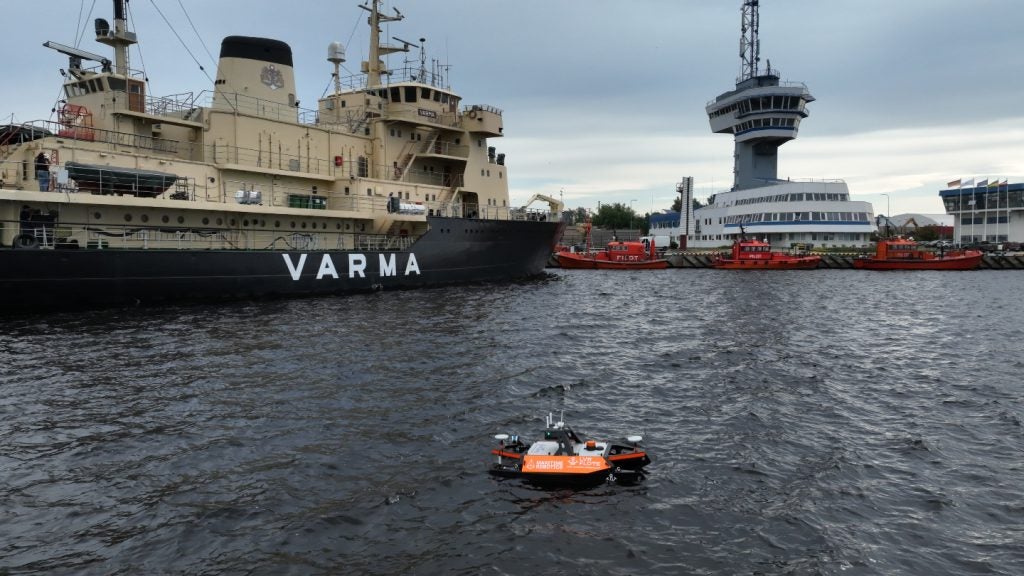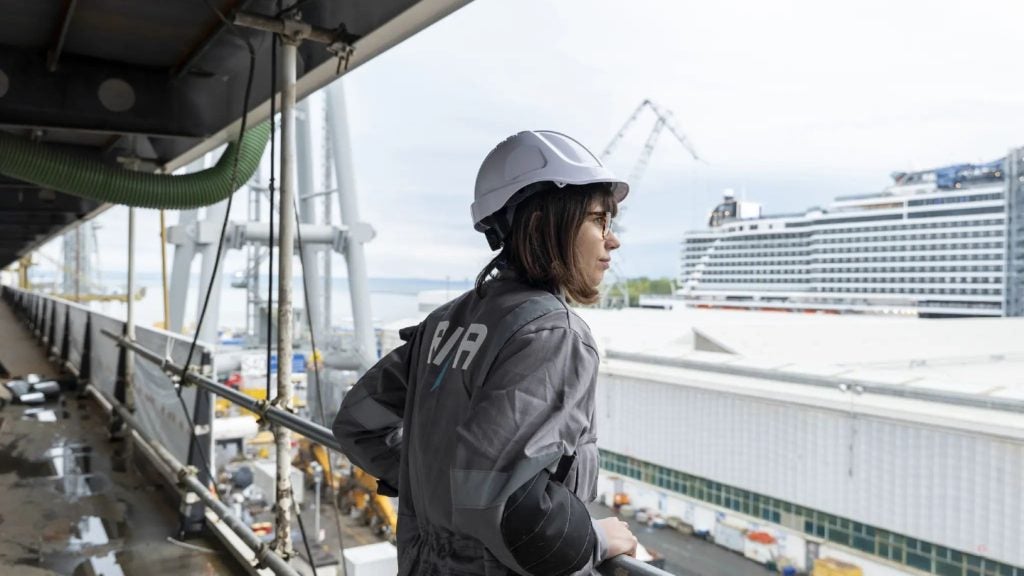
Software company DeepSea Technologies have developed a weather routing solution which is tailored to accommodate individual vessels using AI performance models. As a result of understanding each vessel to a great extent, predictions regarding weather routing capability become more accurate.
This data driven process is unlike traditional weather routing processes, taking individual ships into consideration as opposed to simply checking weather conditions. In addition, the company sees this method as a transformative decarbonisation tool as opposed to just a safety asset.
Data driven technology is still considered a recent development, and shipowners and cargo owners are becoming increasingly aware of the significance of performance routing.
Jasleen Mann: What is DeepSea Technologies’ key area of focus at the moment?
Angus Whiston: As fuel costs rise and regulation looms, a challenging marketplace has arisen that neither the shipping industry nor the planet can afford any longer. The upcoming implementation of the IMO’s CII, EEXI and amends to EEOI, as well as the anticipated introduction of new carbon taxes, mean that savings in both fuel and emissions have become more business-critical than ever.
The aim is to provide a consolidated offering of data-driven AI efficiency and performance routing solutions and world-class expertise to shipowners, cargo owners, and all other members of the industry, who cover the cost of fuelling each transit. By addressing these parties’ incentive to minimise fuel consumption, AI-powered efficiency holds the key to accelerating the industry’s progress as it transitions towards a sustainable future.
How well do you really know your competitors?
Access the most comprehensive Company Profiles on the market, powered by GlobalData. Save hours of research. Gain competitive edge.

Thank you!
Your download email will arrive shortly
Not ready to buy yet? Download a free sample
We are confident about the unique quality of our Company Profiles. However, we want you to make the most beneficial decision for your business, so we offer a free sample that you can download by submitting the below form
By GlobalDataHow do you differentiate yourselves from other software companies in this industry?
Our flagship product – Pythia – is an industry-first, next generation weather routing and voyage optimisation platform. Unlike other products on the market, this solution is tailored to the exact performance of individual vessels, under all conditions, and makes use of AI performance models based on highly detailed real-time data.
Pythia obtains a highly accurate understanding of a vessel. We refer to this as a vessel’s ‘DNA’. Taking into consideration a vessel’s ‘DNA’, Pythia adds layers of accuracy to weather routing capability, setting itself apart from traditional weather routing technology, and offering – on average – an additional 8% in fuel and emissions savings.
This insight is used to develop a dynamic, tailor-made performance model for each ship. Analysing 19 different parameters, these models accurately track how a vessel performs over time, and under any condition, including those relating to weather and the physical state of the vessel, such as fouling levels.
This essentially offers operators a ‘crystal ball’, predicting what a voyage will look like in terms of fuel consumption before it has even begun. Without the intelligence gained from understanding a vessel’s performance prior to disembarkation, this level of real time management is unreachable – effectively meaning that weather routing data, used as a standalone technology, only provides part of the solution.
What methods are used to predict a vessel’s transit with such accuracy?
Before it even leaves port, AI-powered modelling provides a critical foundation for understanding a vessel’s performance. This level of predictability means that, even accounting for uncertainties in weather, a voyage can be predicted – with 99% accuracy – before it begins. Furthermore, the modelling adapts in real-time to the changing conditions.
Continual automated monitoring of a vessel’s existing data sources and third-party data means that the correct actions can be taken when unpredicted weather conditions inevitably occur. For example, an optimal change in speed can be suggested if an unexpected sea-state is encountered – thereby turning the unpredictable into something that can be intelligently managed.
How have AI/weather routing approaches changed over time?
Traditional weather routing is a well-known concept, having been used in shipping for years to optimise voyages by analysing existing weather forecasts and plotting the safest way of getting from point A to point B. However, AI and other digital advancements are now coming into play, and are taking traditional weather routing approaches to a new level.
AI is allowing shipping companies to truly understand vessel performance and optimise voyages for the first time, by considering not only weather conditions but also an individual ship’s DNA. Therefore, weather routing is fast becoming obsolete as dynamic vessel modelling, enabled by AI, opens the door to the next generation of weather routing: Performance routing.
How do AI/weather routing approaches accelerate the decarbonisation of the sector?
Performance routing unites and takes weather, voyage, and vessel optimisation to the next level, evolving from merely a safety asset to a transformative decarbonisation tool. Shipping can unlock increased fuel savings, further performance, and efficiency gains, and will be key to enabling just in time (JIT) arrivals for enhanced impact across shipping’s entire value chain.
The impact of this technology is now measurable. In one comparison of Pythia versus a traditional weather routing provider, a vessel sailing from Shanghai to Singapore saved 12.1 metric tonnes of bunker fuel, equating to a cost and CO2 saving of over $6,000 and around 35 tonnes, respectively.
Both approaches reacted to the same weather information – however, without integrated hull modelling, the traditional weather routing provider made major over-adjustments for currents, leading to a significant negative impact on fuel consumption. This led to a greater overall fuel consumption than if the ship had foregone the routing process completely, and instead simply stuck to a constant speed.
Do you expect to see new developments in this area?
In the near future, the development and implementation of rigorous standards of transparency will be important, if not crucial, in ensuring commercial success within shipping. With this increase in transparency will come better quality data, and, in turn, ever more accurate models. As model accuracy improves, we expect to see opportunities for further savings unlocked, and a more widespread adoption of JIT arrivals.
Transparency is a two-way street. With the hype around artificial intelligence in shipping at an all-time high, providers will need to develop precise methods to prove, with consistency, the value of what they’re offering. The effective implementation of artificial intelligence technology in shipping will require investment in pioneering research – not only into different vessel modelling approaches – but also how these models will be utilised in real-world conditions.
What opportunities will be available as a result?
Ship owners, operators and charterers will see wins in supercharging their fuel efficiency, which is now important whether you pay for fuel or not, and building a competitive advantage re CII. It’s time to replace weather routing with Performance routing to enable fuel cost savings and progress decarbonisation based on data and individual vessel performance.
What are challenges that you have overcome?
Deep fragmentation has delayed the adoption of data-driven technology. The industry has so far been unable to reach a consensus on which efficiency enhancements to choose, delaying not only the digital maturation of individual companies, but also the ongoing development of potentially game-changing solutions.
Standardisation across the global fleet is key to unlocking the full potential of data and AI in shipping – and accelerating the decarbonisation of the sector. DeepSea has worked to make a data-driven approach accessible and advantageous to all, allowing members of the shipping industry to meet environmental regulations as rapidly as possible.
With new AI-driven technologies bringing down the cost of these solutions, the number of industry players realising significant financial and environmental benefits from adopting a data-driven approach is rapidly increasing. Our aim is to maintain this momentum, further increasing understanding of the value these investments offer when buying or chartering specific vessels.
What challenges do you expect to see in the future?
With shipping facing the spectre of fuel costs at an all-time high, the anticipated cost of carbon as a tax or levy, increasing fuel costs for new, low carbon fuels with much lower energy density, pending CII and EEXI regulations, and ‘demand side’ ESG drivers from shippers, banks, and other stakeholders, optimising every voyage has become even more important both economically and for the sake of the planet.
While previously, shipping’s progress was encumbered by antiquated charter party agreements that prioritised quick arrival as a priority, the need to supercharge fuel optimisation to meet new push and pull demands has never been greater. These pressures will be felt by shipowners and cargo owners alike; with all stakeholders beginning to recognise the importance of Performance Routing.
Resolving these issues will require an industry-wide shift in thinking, but improving access to data-driven technologies can accelerate this process.






